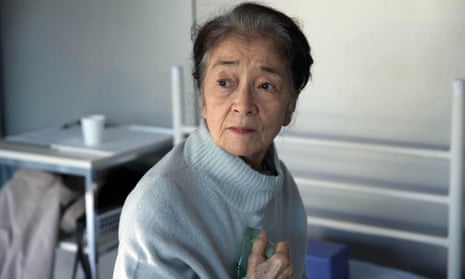This strange, melancholy film from Japan effectively makes the (unfashionable) case against euthanasia: that old people won’t want to be a bother or appear selfish and so will feel pressured into accepting state medicide. Director and co-writer Chie Hayakawa imagines a future in which Japan, burdened with an ageing population, proposes a supposedly voluntary but actually insidiously coercive arrangement called Plan 75, in which citizens of 75 years and above can sign up for an easeful death in return for 1,000 dollars which they can either spend on themselves or give away to their family. The system becomes a success, to the extent that a chilling Plan 65 is mooted, and the drama shows us how this creates a new burden for old people: the burden of explaining to themselves why they don’t just do the rational thing and end it all.
We see older characters retired from jobs which they really need, people without access to welfare and housing, old people who are desperately lonely and who even crave the Plan 75 helpline as someone to talk to. But the movie creates dissident moments: a young employee of Plan 75 realises that one applicant is his elderly uncle, while a Plan 75 call centre operative meets an old lady in person and takes her for an evening’s bowling, and realises that her colleagues are being trained in steering callers away from the last-minute change of heart which is the customer’s theoretical right.
after newsletter promotion
This is a poignant and weird film, and it could well be that in real life this scheme would almost solely attract, as it does here, people who are utterly alone without family, although I think there would surely be many with families, families perhaps keen to get their hands on the money. And wouldn’t there be an issue with over-75s who had a fatal illness? Would they be entitled to the payout? Or would applicants have to prove basic health? Maybe Hayakawa ruled scenarios like these out in case the film became too vulgarly satirical. For all this, its evocation of misery is certainly well managed.
